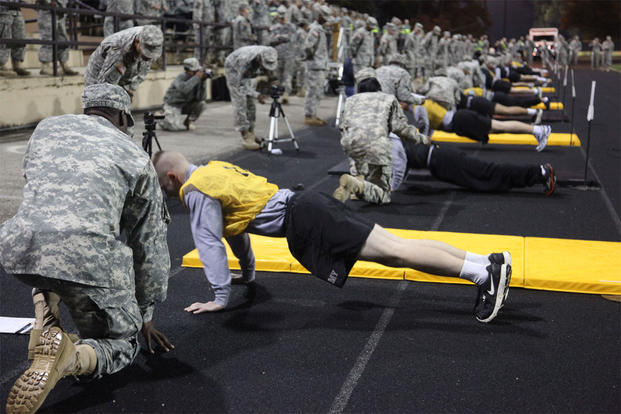The U.S. Army wants to create specific physical fitness tests aimed at ensuring that soldiers can meet the physical challenges of their jobs in wartime.
Army Chief of Staff Gen. Raymond Odierno is waiting on a recommendation that would create PFTs that are designed around the physical requirements of military occupational specialties such as infantry, cavalry, armor and others.
"I expect that the in the next several months Training and Doctrine Command will come forward with a recommendation," Odierno said during a Jan. 6 virtual Town Hall meeting with soldiers across the Army.
"This is maybe how I see it. I think there might still be a general PT test similar to [the current] pushups, sit-ups, two-mile run. But then there will be a functional test per by MOS that really focuses on what strengths should need to be in a certain MOS."
Odierno said he saw a recommendation for a new PFT when he first became chief, but it was "inadequate."
So he directed training officials to begin looking at qualifications for every MOS. The data collected from the effort will "help us to understand physiologically when we go to war, what are the requirements that we have to have for somebody to be able to do their job under stressful conditions."
Sgt. Major of the Army Raymond Chandler III said the effort will help the Army be sure it has the right people in the right jobs.
"Can you do the physical tasks associated with your MOS?" Chandler said. "If not, let's see if there is another place where we can help you continue to serve but maybe not in the same MOS."
The Army is also looking at standards female soldiers will have to meet if they want to serve in combat-arms units. All of the services have until 2016 to come up with a plan to meet the Pentagon directive.
A high-profile part of that effort will soon take place when female soldiers are allowed to attend Ranger School for the first time. Male students who attend the grueling two-month course average only a 50-percent graduation rate.
The pilot program is an attempt to assess how females to in the demanding course, Odierno said.
"We are just going to kind of let the statistics speak for themselves," he said. "The main thing that I am focused on is that the standards will remain the same."
Once the pilot is complete, senior leaders will then decide if Ranger School will remain open to women.
"We are going to take a look at the data, and we will move forward one way or another. There are no preconceived notions of what the outcome will be."
-- Matthew Cox can be reached at matthew.cox@military.com



























